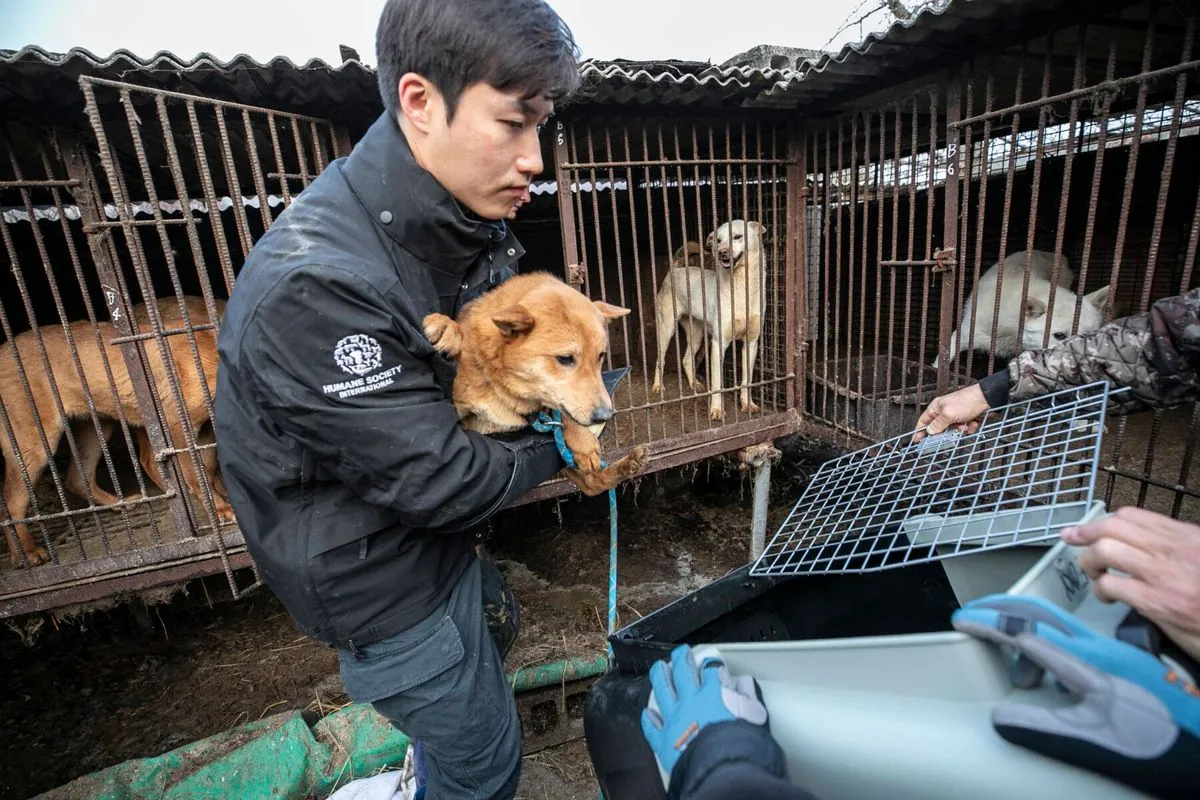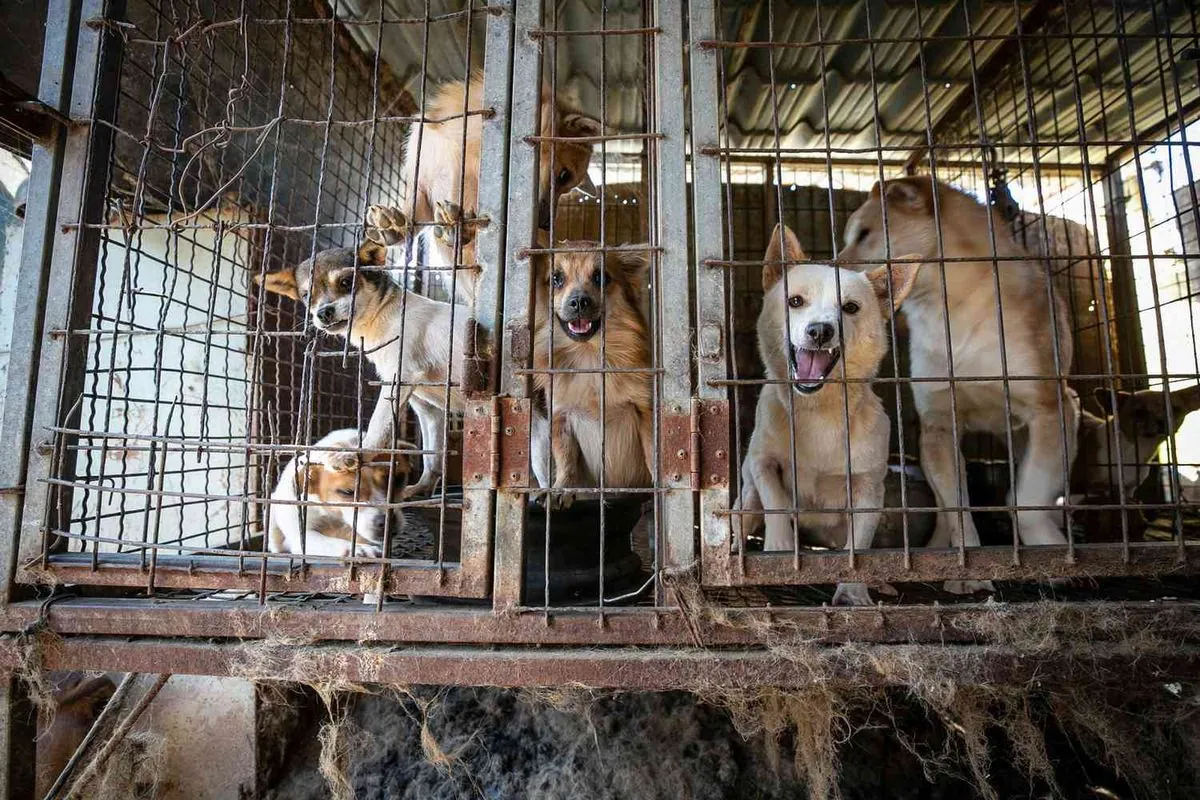South Korea Unveils Plan to Ban Dog Meat and Rehome 500,000 Dogs
South Korea announces a comprehensive plan to ban dog meat consumption by 2027, including subsidies for farmers and efforts to rehome nearly half a million dogs bred for food.

South Korea has unveiled a groundbreaking plan to end the centuries-old practice of dog meat consumption, marking a significant shift in the nation's cultural landscape. The government's initiative, announced on September 26, 2024, aims to ban the eating and selling of dog meat by early 2027, while providing support to those affected by the change.
The South Korean agriculture ministry has committed approximately 100 billion won ($75 million) to facilitate this transition. This financial package includes subsidies and incentives for dog breeders, farmers, and restaurants to cease their operations related to the dog meat industry. Additionally, the government will offer up to 600,000 won ($452) for each dog surrendered by farmers.
A key component of this plan involves the rehoming of nearly 500,000 dogs currently bred for food. Vice Agriculture Minister Park Beom-su emphasized the government's commitment to finding new homes for these animals, stating:
"Although many are concerned the remaining dogs might be euthanized or a lot of them could be processed for consumption over the next three years, I can certainly say, that is not our plan."
The decision to ban dog meat consumption reflects growing support for animal welfare in South Korea. This shift in public opinion has been particularly noticeable under the administration of President Yoon Suk Yeol, an animal lover who, along with First Lady Kim Keon Hee, has been a vocal advocate for animal rights.

The practice of eating dog meat in Korea dates back to the Three Kingdoms period (57 BC - 935 AD), with the dish traditionally consumed during the hottest days of summer. However, as South Korea has modernized, attitudes towards dogs have shifted dramatically. The country now boasts one of the highest rates of pet ownership in Asia, with a significant increase reported during the COVID-19 pandemic.
Currently, South Korea has over 1,500 dog breeding farms, more than 200 slaughterhouses, and approximately 2,300 restaurants serving dog meat. The government's plan aims to address this industry comprehensively, providing a framework for its gradual phase-out.
Despite the government's efforts, the plan has faced criticism from both animal rights activists and members of the dog meat industry. Sangkyung Lee, a campaign manager at Humane Society International, expressed concerns about the capacity of animal shelters to accommodate the large number of dogs that will need rehoming. On the other hand, Ju Yeongbong, representing a dog meat industry group, argued that the proposed subsidies are insufficient and called for more substantial support.
The ban on dog meat consumption is set to take effect in February 2027, giving stakeholders approximately three years to adapt. This timeline aligns with previous efforts to address the issue, such as the closure of Seoul's last major dog meat market in 2019 and the city of Bucheon's prohibition on dog slaughter in 2020.
As South Korea moves forward with this historic change, the government faces the challenge of balancing animal welfare concerns with the livelihoods of those involved in the dog meat industry. The success of this initiative will likely depend on effective implementation of the rehoming program and the provision of adequate support to affected businesses and individuals.


































